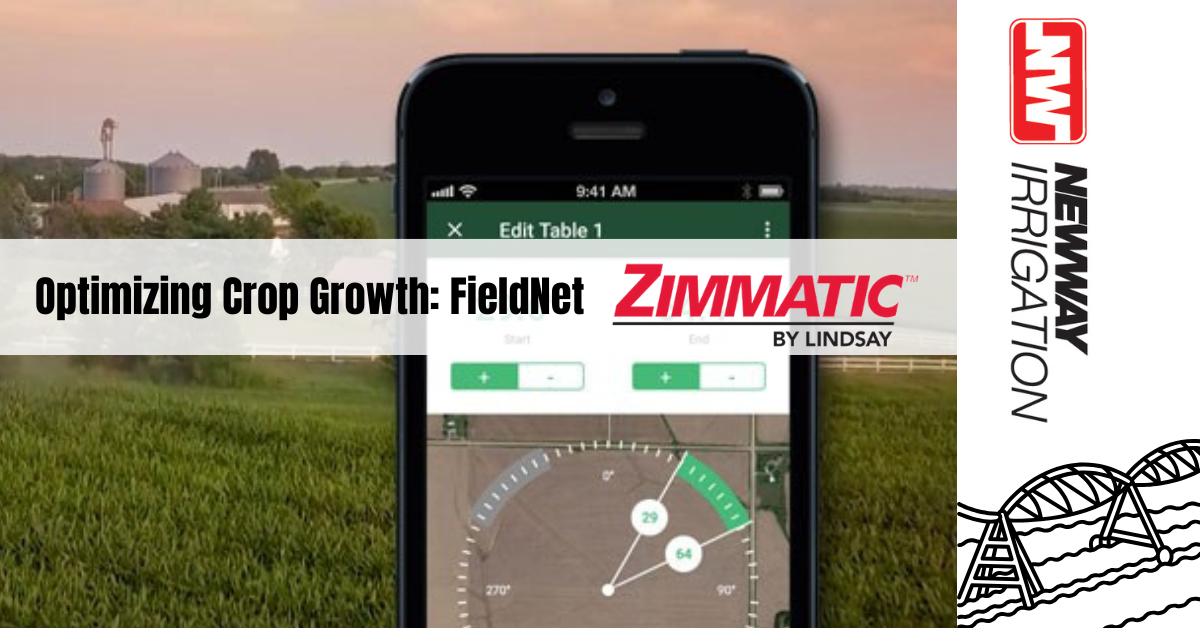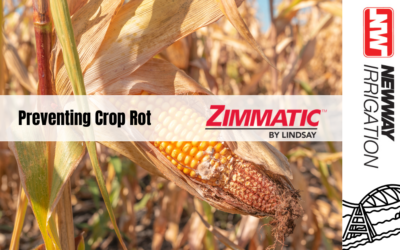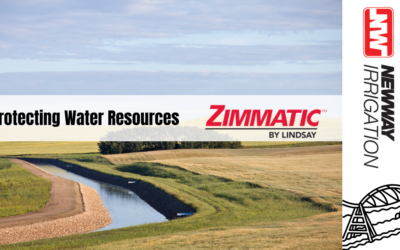In the agricultural heartlands of Southern Alberta, including Lethbridge, Taber, and Brooks, maximizing water efficiency while maintaining high crop yields is a constant challenge. Enter FieldNet technology—a game-changer for farmers looking to optimize their irrigation practices through real-time data and control. This advanced irrigation management system, integrated with Zimmatic pivots, has transformed how farmers monitor, adjust, and improve water use on their fields.
FieldNet’s impact can be seen in the specific crops grown throughout Southern Alberta, where diverse climate and soil conditions call for precision farming. From specialty crops like sugar beets to staple grains like wheat and barley, farmers are harnessing the full power of FieldNet to improve yield quality, enhance water conservation, and adapt to the area’s unpredictable weather patterns.
1. Sugar Beets: Precision to Boost Water Efficiency and Yield
Southern Alberta’s climate, particularly in Taber, is ideal for growing sugar beets, but it comes with challenges, including variable rainfall and periods of drought. Sugar beets require a careful balance of moisture throughout their growth cycle—too little water leads to poor yields, while too much can cause root rot.
Farmers using FieldNet with Zimmatic pivots have reported exceptional results in optimizing water distribution for their sugar beet crops. FieldNet’s real-time moisture tracking allows them to monitor precise levels of soil moisture and make immediate adjustments to their irrigation systems.
One farmer in Taber remarked that FieldNet allowed him to adjust water delivery to his fields after detecting a rapid change in soil moisture during an unusually dry stretch in the summer. By remotely adjusting the pivot schedule through his mobile device, he was able to prevent crop stress, ensuring his sugar beets received just enough water at the critical growing stage.
2. Wheat: Managing Weather Variability with Precision
Wheat, a cornerstone crop for farmers in Lethbridge and Brooks, thrives in Southern Alberta’s semi-arid environment. However, managing wheat fields is often complicated by the area’s unpredictable weather, including strong winds and sudden shifts in rainfall. Too much water at the wrong time can result in disease, while too little can stunt growth or reduce grain quality.
FieldNet helps farmers optimize wheat irrigation by offering fine control over watering schedules based on weather forecasts and real-time field conditions. One grower in Brooks shared how he adjusted his pivots to delay watering when FieldNet’s weather data predicted a heavy rainstorm. As a result, he avoided the risk of overwatering his crop, which would have jeopardized both yield quality and soil health.
With the system’s ability to track and respond to weather patterns, Southern Alberta’s wheat farmers can time their irrigation cycles precisely, ensuring their fields are well-watered but never waterlogged. This type of dynamic irrigation control has become essential to maintaining healthy wheat crops, particularly as farmers work to conserve water in this resource-sensitive region.
3. Potatoes: Precision for High-Value Crops
Potatoes are a high-value crop grown in Southern Alberta, especially in areas like Brooks and Lethbridge. These crops are notoriously sensitive to water levels, needing consistent moisture to avoid stunted growth, deformities, or other quality issues. Too little water affects tuber formation, while too much causes rot, particularly during the bulking phase.
FieldNet has been a crucial tool for potato growers who need to maintain precise water control across their large fields. One farmer in Lethbridge described how FieldNet’s detailed analytics helped him optimize the amount of water his potato crop received during different growth stages. With the customized irrigation scheduling feature, he adjusted watering rates to meet the specific moisture needs at each phase of the growing season, ultimately resulting in a more uniform and high-quality harvest.
By reducing water waste and preventing over-irrigation, FieldNet has given potato farmers the ability to maximize their yield potential while conserving water—a key consideration given the water restrictions often in place in Southern Alberta.
4. Barley: Balancing Irrigation and Soil Moisture
Barley is another important crop in Southern Alberta, used for livestock feed, brewing, and food production. Growing barley successfully requires a balance between soil moisture and the crop’s water needs, which can vary greatly depending on the season and weather patterns.
One farmer in Brooks implemented FieldNet to better track the soil moisture levels across his expansive barley fields. He found that certain sections of his field were consistently overwatered, leading to uneven crop development and reduced yields. With FieldNet’s zone-specific irrigation control, he was able to monitor moisture levels across different sections and make immediate adjustments.
This level of precision has led to more uniform barley growth, healthier plants, and a better overall yield. It has also significantly reduced water usage, contributing to sustainable farming practices in a region where water is at a premium.
5. Corn: Maximizing Yield Through Data-Driven Irrigation
Corn is a major crop in Lethbridge and surrounding areas, and it demands consistent moisture throughout its growing season. Managing corn irrigation effectively can be a challenge, especially in years where the weather fluctuates or when irrigation resources are limited.
Using FieldNet, corn farmers in Southern Alberta have been able to use real-time data to adjust their irrigation practices based on crop development stages, soil conditions, and expected weather. One grower from Lethbridge mentioned how FieldNet allowed him to react swiftly to a particularly dry spell by adjusting his pivot settings remotely, ensuring his corn crop continued to receive the optimal amount of water at the most critical growth stages.
By integrating FieldNet with Zimmatic pivots, these farmers have achieved maximum yields without overextending their water resources, reducing operational costs, and adhering to sustainability goals. FieldNet’s ability to track, analyze, and adjust in real time has made it a cornerstone of effective corn irrigation management in this region.
Conclusion: FieldNet’s Game-Changing Impact on Southern Alberta Farms
For farmers in Southern Alberta, FieldNet offers more than just convenience—it delivers game-changing precision that helps them make smarter irrigation decisions. From sugar beets and wheat to potatoes, barley, and corn, the integration of FieldNet with Zimmatic pivots has helped farmers reduce water usage, improve crop health, and maximize their yields. By providing real-time control and actionable insights, FieldNet empowers Southern Alberta’s farmers to optimize their irrigation strategies, ensuring they meet both productivity and sustainability goals.
New Way Irrigation is proud to bring this innovative technology to the region, helping local farmers stay ahead in a competitive and resource-constrained agricultural landscape.




